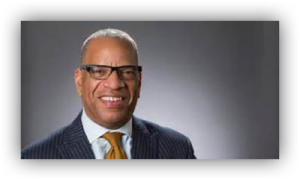Don’t take it from us—we want you to hear directly from PLACES alumni about how their experience as a PLACES fellow impacted their work, grew their understanding of equity work in philanthropy, and was an opportunity for personal growth and community learning.
The deadline to apply for a 2018 PLACES Fellowship is Oct. 31, 2017. Apply here!
The Next Generation of Thought Leaders
“As a funder, I have been personally invested in PLACES since the first class. The work at my foundation is increasingly focused on people and place and that’s what PLACES does—it helps funders who may be coming at smart growth from a different orientation and really adds the complex but necessary dimension of addressing the people who are directly affected by the results. And it does it in a way that centers on targeting investment resources towards the interests and needs of those families so that they can be part of the solution rather than apart from the solution. PLACES is about expanding the way that we think about smart growth in a way that’s more transformative for the communities in which we are working.
PLACES has always had its roots in making the connections between people and place. One aspect of the Fellowship that has really grown is the targeted addition of core leadership development training and coaching. We’ve enhanced the reach of what of PLACES does by embedding the knowledge that comes out of PLACES into foundations, by developing stronger leaders, and by strengthening the backing of supervisors to support their staff becoming fellows.
When you start something like a fellowship, there’s always a struggle to get participation, but the positive energy coming from the PLACES fellows is helping to grow the program organically. People are waiting to apply rather than TFN going to look for them. That growth in stature is because of PLACES’ effect, not just because of its popularity.
PLACES is nurturing the field leaders of tomorrow. PLACES provides the space for a diverse group of people to dive into those tough conversations about race and equity and then gives them the tools that they need to be not just an agent of change in their place, but a translator, a provider of the safe space themselves to open those conversations and move people towards action. PLACES opens up philanthropic leadership opportunities to funders from diverse backgrounds and helps elevate funders who come in at one place to move up to a different place.
PLACES alums are the next generation of thought leaders. They are assuming the leadership mantle where they work and in the field at large. Nowhere is that more evident than the four PLACES alums serving on the TFN board.”
Scot Spencer, TFN Board Member and PLACES Advisory Board Member
The Annie. E. Casey Foundation
Associate Director, Advocacy and Influence
 Scot Spencer leads the Foundation’s work in advancing community-focused policies, practices and strategies that increase opportunities for children, families and the places where they live and foster their success. Spencer also coordinates Casey’s local advocacy efforts in Baltimore.
Scot Spencer leads the Foundation’s work in advancing community-focused policies, practices and strategies that increase opportunities for children, families and the places where they live and foster their success. Spencer also coordinates Casey’s local advocacy efforts in Baltimore.
Before taking on these roles, Spencer managed Casey’s investments in East Baltimore, where the Foundation seeks to strengthen community and economic development in a historic, low-income neighborhood next door to the Johns Hopkins University medical campus. He previously was a transportation specialist at the Environmental Defense Fund, where he focused on state-level smart-growth policy and Commuter Choice, a local tax incentive for people who use transit. He also served as deputy director for Historic East Baltimore Community Action Coalition. There, he led the federal Bridges to Work demonstration, which provided job training and placement services for residents in East and West Baltimore, as well as transportation from their neighborhoods to employment centers in the suburbs. In addition, he worked for several years in private architectural practice, community development and university relations in upstate New York.
Spencer serves on a number of local and national boards, including The Funders’ Network for Smart Growth and Livable Communities and the Orton Family Foundation. He was the founding chair of the Maryland Commission on Environmental Justice and Sustainable Communities and served as co-chair of the Opportunity Collaborative, Baltimore’s regional plan development through the U.S. Department of Housing and Urban Development’s Sustainable Communities Initiative.
